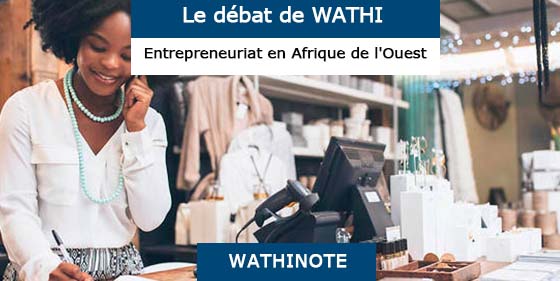

Authors: Grégory Renand, Asheesh Advani
Site of publication: World Economic Forum (Weforum)
Type of publication: Article
Date of publication: August 12th, 2022
Africa’s first startup unicorns
Africa is blossoming with entrepreneurial potential and now boasts seven unicorns (In the venture capital industry, the term unicorn refers to any startup that reaches the valuation of $1 billion.), up from zero in 2015, thanks to well-developed entrepreneurial education programs and ecosystems in some of Africa’s larger countries. Among these unicorns, the majority are fintech and e-commerce businesses, a development that is fueling excitement about the region’s potential as a future digital powerhouse and attracting new venture funding. One startup, Nigeria’s Jumia, has already hired over 5,000 employees.
Fostering entrepreneurship ecosystems and building resilience
According to our colleague Simi Nwogugu, CEO of JA Africa, “Many young Africans are entrepreneurial by nature, but are limited in their ability to understand and break down the challenges around them in order to properly apply technology and innovation to solve them.”
Meaningful interventions through educational, development, and social-good organizations must connect local, regional, and global entities, with each organization bringing its own, unique expertise
Many other continents have been fostering entrepreneurship ecosystems and building resilience into entrepreneurs’ DNA for generations. Compare, for example, Africa’s three unicorns in 2021 to more than 1,000 unicorns in North America, Asia, and Europe, where entrepreneurship education and supportive ecosystems have been prioritized for decades.
A regional partnership to build an ecosystem of innovation
Fast-tracking and scaling entrepreneurial education in Africa, therefore, means fast-tracking and scaling resilience, creative problem-solving, and self-efficacy. That’s why Z Zurich Foundation, JA Worldwide, JA Africa, and JA member countries in Africa have created a new regional partnership that builds an ecosystem of role models and mentors, along with a mix of high-tech digital learning experiences, low-tech options like television, radio, and podcasts, face-to-face experiences with role models, and, once students graduate, regional and local vehicles that either match students with employers or help youth launch businesses through incubators and seed grants.
A long-term commitment
One reason for less-than-satisfactory results is that inculcating resilience doesn’t happen overnight. Instead, successfully partnering in Africa requires a long-term commitment: First creating a movement (a) that leads to a mindset shift (b) that empowers young people to make choices (c) that transform their futures for the better and create brighter futures for other youth in the region.
Connecting local, regional and global organizations
In addition, global organizations cannot do it alone in Africa. Meaningful interventions through educational, development, and social-good organizations must connect local, regional, and global entities, with each organization bringing its own, unique expertise. For example, given the need to connect the supply of skilled innovators in Africa with the demand for skilled innovators within businesses, our two organizations could try to manage such introductions only by leveraging our global connections.
Les Wathinotes sont soit des résumés de publications sélectionnées par WATHI, conformes aux résumés originaux, soit des versions modifiées des résumés originaux, soit des extraits choisis par WATHI compte tenu de leur pertinence par rapport au thème du Débat. Lorsque les publications et leurs résumés ne sont disponibles qu’en français ou en anglais, WATHI se charge de la traduction des extraits choisis dans l’autre langue. Toutes les Wathinotes renvoient aux publications originales et intégrales qui ne sont pas hébergées par le site de WATHI, et sont destinées à promouvoir la lecture de ces documents, fruit du travail de recherche d’universitaires et d’experts.
The Wathinotes are either original abstracts of publications selected by WATHI, modified original summaries or publication quotes selected for their relevance for the theme of the Debate. When publications and abstracts are only available either in French or in English, the translation is done by WATHI. All the Wathinotes link to the original and integral publications that are not hosted on the WATHI website. WATHI participates to the promotion of these documents that have been written by university professors and experts.
